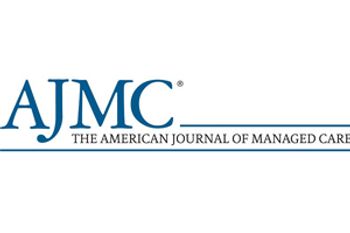
Medicare is alleging laboratories improperly billed the government for improper tests; time is running out for children receiving healthcare from CHIP; the AMA extends its diabetes prevention model to Maryland and other states.

Medicare is alleging laboratories improperly billed the government for improper tests; time is running out for children receiving healthcare from CHIP; the AMA extends its diabetes prevention model to Maryland and other states.

New legislation would suspend the Affordable Care Act’s medical device tax for 5 years; teenagers are now more likely to vape or use marijuana than smoke cigarettes; California women can access birth control at a pharmacist without a doctor’s prescription, but are unlikely to do so.

The FDA wants to enlist consumers to help identify troubling drug ads; DC's only public hospital needs a $17 million bailout; intense exercise can slow the progression of early-stage Parkinson disease.

FDA is considering a faster approval process for medical devices; the American Clinical Laboratory Association is suing the federal government over a new reimbursement system; there are 2 Obamacare special enrollment periods that a greater-than-usual number of people could be eligible for.

Health officials are warning of an unusually harsh flu season; Ascension and Providence St. Joseph Health are in talks about a possible merger; and heavy traffic is expected as the final week of ACA sign-ups begins.

Coverage of our peer-reviewed research and news reporting in the healthcare and mainstream press.

How counties, cities, and schools are saving money by importing drugs for employees; insurers are finally turning a profit on their Obamacare plans; new report projects the number of Americans with Alzheimer's disease will more than double by 2060.

House Speaker Paul Ryan, R-Wisconsin, is eyeing spending cuts to Medicare and Medicaid; Louisiana's Medicaid program reported lower-than-expected spending and a potential surplus; ACA enrollment continues to climb, but expected to fall short of 2017 due to shorter enrollment period.

Humana may also make an acquisition deal and UnitedHealth buys a unit of DaVita; a look at the FDA's expedited review programs; how a billing code discrepancy may have cost taxpayers up to $102 million in Medicare payments to hospitals.

Senator Susan Collins, R-Maine, makes her tax bill vote contingent on more Obamacare funding; some states are setting up programs to recycle leftover drugs; and pregnant women deal with medication uncertainty.

A woman gives birth after receivng a uterine transplant for the first time in the US; a once-monthly treatment for patients with poioid addiction gains FDA approval; and LA public health officials launch an initiative to reduce the annual number HIV infections.

Coverage of our peer-reviewed research and news reporting in the healthcare and mainstream press.

Flu season in North America is off to an early start; exercising regularly might not offset a generally sedentary lifestyle; short-term health plans are being packaged to circumvent Obamacare restrictions.

Alex Azar faces skepticism regarding his ability to regulate drug prices given his past employment; Kellyanne Conway is named America's opioid czar; a study finds childhood trauma can have a generational impact.

A look at the millions of tax filers who chose the penalty over insurance coverage; the cost of unnecessary or excessively expensive medical care; Takeda begins the first Zika vaccine trial.

New skinny plans cause confusion in the healthcare marketplace; the health risks associated with frequent travel need to be studied more; a doctor lacking computer skills loses license to practice.

Some states prepare to end the Children's Health Insurance Program with no new funding; shifting healthcare landscape reveals odd partnerships; Affordable Care Act sign-ups slow in third week of open enrollment.

A new tool developed by the Agency for Healthcare Research and Quality and the ECRI Institute will assess the extent to which a guideline adheres to the Institute of Medicine’s (IOM) standards for trustworthy evidence-based clinical guidelines.

Patients might be able to avoid or better manage surprise ambulance bills; Brexit causes providers to leave London and prevents others from entering Britain at all; new research provides insight on antibiotic resistance.

Coverage of our peer-reviewed research and news reporting in the healthcare and mainstream press.

This Thanksgiving, families will discuss of end-of-life care wishes; FDA provides new guidance for development of abuse-deterrent opioids; Missouri reverses its restrictive policy in Medicaid for hepatitic C medicine.

Consolidation is happening all throughout the healthcare industry in the United States, but the shift to consolidation in dermatology began to pick up speed in just the last 3 to 5 years and it has been driven by private investors, according to a new Viewpoint in JAMA Dermatology.

Massachusetts is trying to get a federal exemption to alter its Medicaid program; patients waiting for disability benefits get stuck in a huge backlog; and companies are preparing to increase collection and use of real-world evidence.

VA Secretary David Shulkin wants the private sector to play a larger role in veterans' healthcare; Arizona's Supreme Court ruled in favor of a component to keep the state's Medicaid expansion; Acorda ends drug development of tozadenant for Parkinson's disease.

A recent abstract presented at the American Society of Clinical Oncology (ASCO) annual meeting compared 2 risk models for patients with intermediate chemotherapy-induced neutropenia (CIN) risk and compared them to guidelines from ASCO and the National Comprehensive Cancer Network to determine when colony-stimulating factor should be ideally used to prevent CIN. ​​​​​​

The White House indicated willingness to leave the individual insurance mandate in place in tax reform legislation; California health system Sutter Health was accused of intentionally destroying 10 years of records related to an antitrust lawsuit; and a new study indicates over 1 in 5 patients develops posttraumatic stress disorder in the months after a cancer diagnosis.

With an expansion that includes immunotherapy combination treatments, the American Society of Clinical Oncology (ASCO)’s Targeted Agent and Profiling Utilization Registry (TAPUR) Study has now grown to 500 participants and 16 therapies.

Coverage of our peer-reviewed research and news reporting in the healthcare and mainstream press.

The FDA issued new guidelines to speed up the review process for gene therapies; a new report calculates the potential societal benefits of eliminating the opioid epidemic; and one-third of Americans are unaware that the ACA's open enrollment season has begun.

An analysis digs into whether the FDA really is approving drugs faster under Commissioner Scott Gottlieb, MD; a clinical trial for a Parkinson's disease drug halts enrollment after 5 deaths; and California fines Anthem $5 million for poor response to consumer complaints.

259 Prospect Plains Rd, Bldg H
Cranbury, NJ 08512
© 2025 MJH Life Sciences®
All rights reserved.
